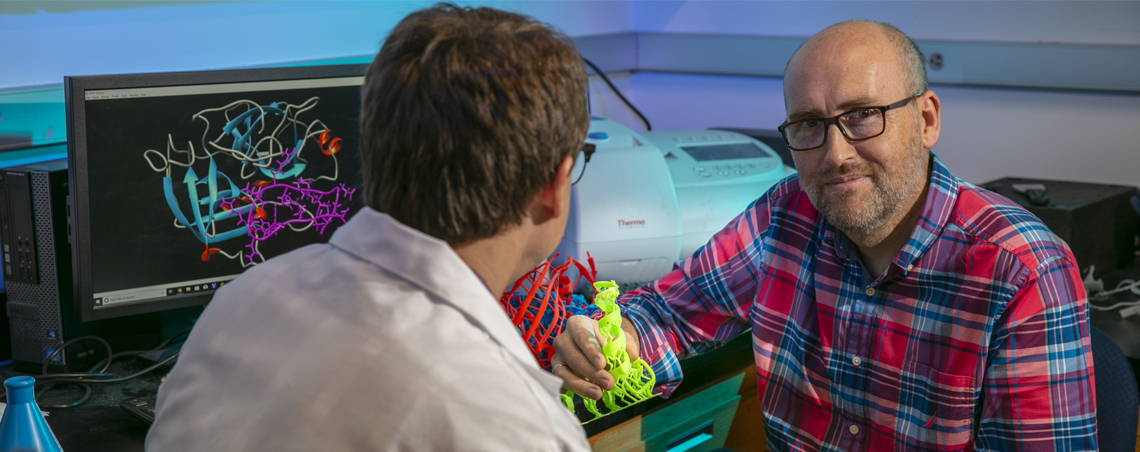
November, 2022
Cholesterol has long been linked to neurodegenerative diseases, including Alzheimer's disease (AD), although its exact role is still unknown. Thanks to a recent $435,000 grant from the National Institute of General Medical Sciences (NIGMS), researchers from Florida Atlantic University’s Schmidt College of Science and FAU’s Stiles-Nicholson Brain Institute hope to better understand how these intricate, subcellular cholesterol transport pathways work and how they contribute to neurodegeneration.
The award marks the first joint collaboration between the Schmidt College of Science and FAU’s Stiles-Nicholson Brain Institute. The award recipients, Maciej Stawikowski, Ph.D., Research Associate Professor in the Department of Chemistry and Biochemistry, and Qi Zhang, Ph.D., Research Assistant Professor, Biomedical Science, College of Medicine and the Schmidt College of Science, also both serve as faculty members in FAU’s Brain Institute.
Predrag Cudic, Ph.D., associate dean for research and professor states, “The proposed research aims to develop new and unique fluorescent chemical probes that were not previously available. This is significant not only because it will improve our knowledge on cholesterol synthesis, cellular distribution, and trafficking in normal cells, but it will also aid our understanding of the role of cholesterol in diseases such as Huntington's and Alzheimer's. This is an excellent example of successful collaborative research between researchers in our College and the FAU Stiles-Nicholson Brain Institute.”
Their project, “Investigating Intracellular Cholesterol Distribution and Trafficking Using Novel Environment-sensitive Cholesterol Probes,” aims to take a multidisciplinary strategy with advanced technologies including computational chemistry, chemical synthesis and live-cell imaging.
“The collaboration between our labs has been great and productive,” said Stawikowski. “My lab brings to the table the chemical biology expertise, while Zhang’s lab contributes to imaging techniques, as well as cell biology and neurophysiology.”
In this study, researchers will design and test a new fluorescent cholesterol probe toolbox to investigate subcellular cholesterol transport and its physiological and pathological implications.
“In summary, this project will rejuvenate the studies of membrane cholesterol and give the participating undergraduate students a cross-disciplinary research experience,” explained Stawikowski.
As part of the National Institutes of Health (NIH), NIGMS supports basic research that increases scientists’ understanding of biological processes and lays the foundation for advances in disease diagnosis, treatment and prevention.